We love them, but we still don’t know for sure whether the Caucasus are in Europe or Asia.
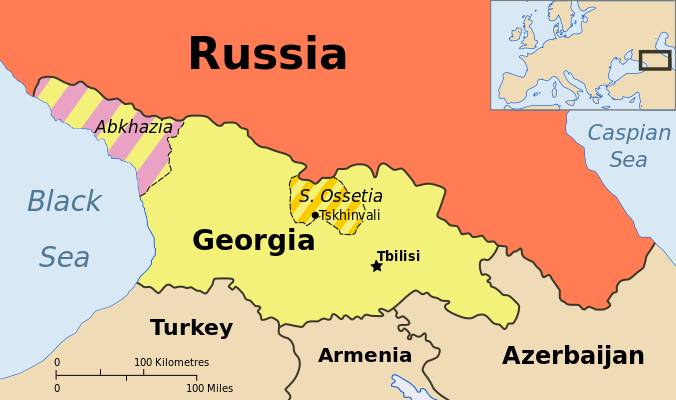
The Caucasian Challenge departs from Istanbul (in Europe, not in the Caucasus), before heading west across Northern Turkey (not in Europe, not in the Caucasus), reaching Georgia (maybe in Europe, definitely in the Caucasus) and Armenia (ditto). Can it be possible that for two days we are East of Europe, but driving further East… towards Europe?
The Simple Question: Where are the Caucasus?
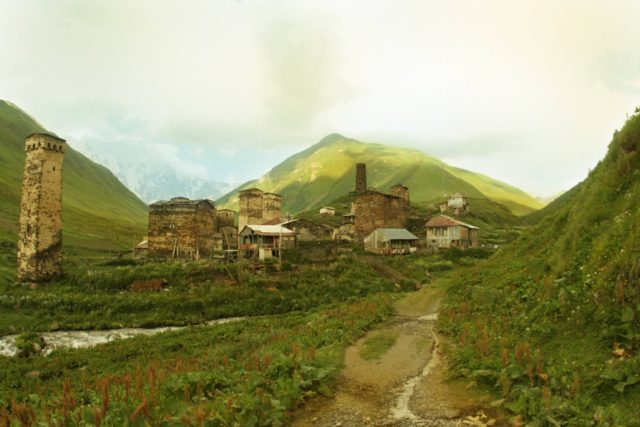
Anyone can find the Caucasus on a map: they are, essentially, the region between the Black and Caspian Seas. We explore the Southern Caucasus, which extends South towards the border with Iran at the Araxes river. The Northern Caucasus are a considerably less welcoming region: it’s packed with tiny nations mostly part of the Russian Federation, with differing levels of autonomy. Here you can find the comparatively well-known Chechnya and Dagestan, beside the very much not-well-known Ingushetia and Karachay–Cherkessia. The entire region sits atop the Caucasus mountains: the Greater Caucasus are mostly in the North Caucasus, while the Lesser Caucasus range is further South.
The More Interesting Question: Are the Caucasus in Europe?
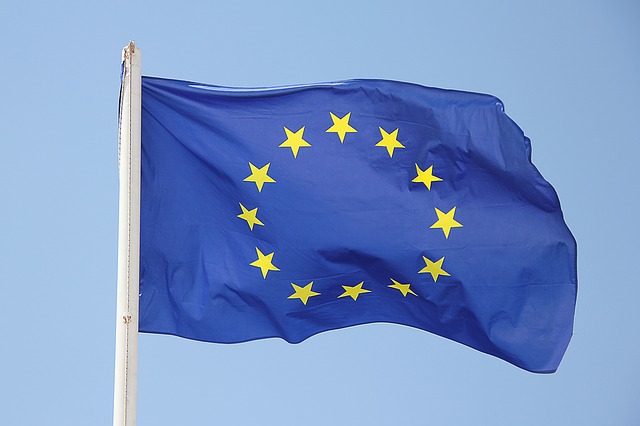
If Europe is considered solely a matter of Geography, the Greater Caucasus mountains make a natural dividing point. According to this conception, the Northern Caucasus are European, while the Southern Caucasus — Georgia, Armenia, and Azerbaijan — are Asia. Likewise, the Black Sea is another natural barrier. It certainly seems odd for a region to the East of Anatolia (which is considered almost certainly Asian) to be European. However, it’s not that simple.
The Controversial Question: Are the Caucasus in Asia?
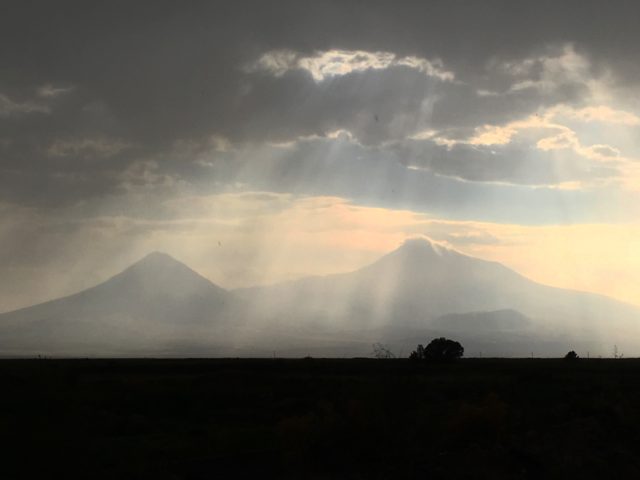
Europe is also an idea: relating to the past, and also to the future. Georgians consider themselves central to the mythology of Europe: when Jason and the Argonauts sought the Golden Fleece, they are said to have traveled to the kingdom of Colchis, which is in present-day Georgia. While the significance (and truth) of that story is debatable, it’s undisputed that Armenia and Georgia were the first two nations to convert to Christianity. Many would consider that the ultimate sign of European identity. Nowadays, all three South Caucasian nations play competitive sport as European nations: does that settle the debate?
The Sensible Question: Maybe It’s Not So Simple?
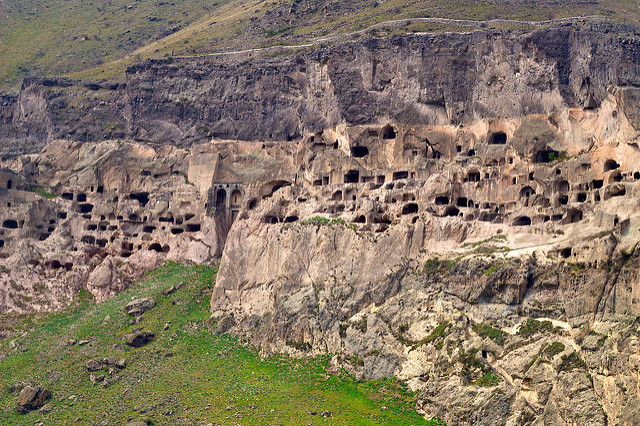
Driving around the South Caucasus, you’re likely to see what appear to be EU flags on official buildings, particularly in town centers. However, this is in fact the flag of the Council of Europe: a less exclusive group than the EU, but one for which membership does designate “European-ness”. Nations are proud of membership: in 1999, the year Georgia joined, the prominent politician Zurab Zhvania famously declared “I am Georgian, therefore I am European“. Joining the “European family” entails mutual cooperation with regard to culture, economics, and security, but does it really settle our debate? Perhaps Europe is just the latest empire to take an interest in this fascinating region.
The Sensible Answer: The Caucasus are Unique
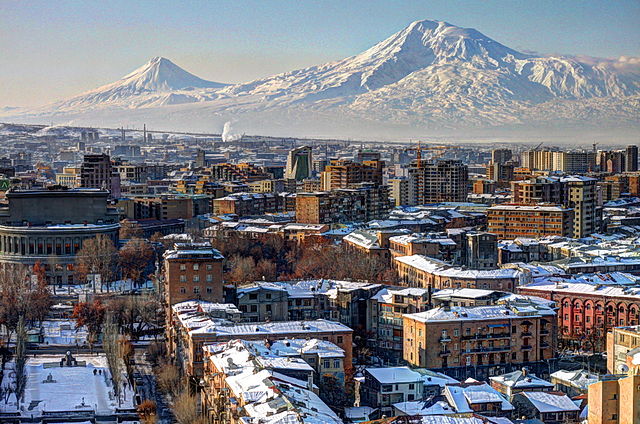
The Caucasus has spent millennia being attacked by forces from the South (Persians), West (Ottomans), North (Russians), and even East (Mongolians). While many brutal battles took place, in their wake the imperialist left a unique culture, quite unlike that of Europe. The region’s architecture, cuisine, and demographics (whereby, for centuries, the majority populations mixed with minorities such as Kurds and Lezgins), all show evidence of these multiple influences. At the same time, much of Caucasian culture grew from mountain isolation: both Georgian and Armenian languages bear virtually no similarity with any others on Earth. So, it’s maybe best to think of the Caucasus as between Europe and Asia, like Istanbul itself. While, for now, it’s within the European political periphery, there are many more elements which make the Caucasus so special. It doesn’t really matter where it is, just that you visit, and soon!
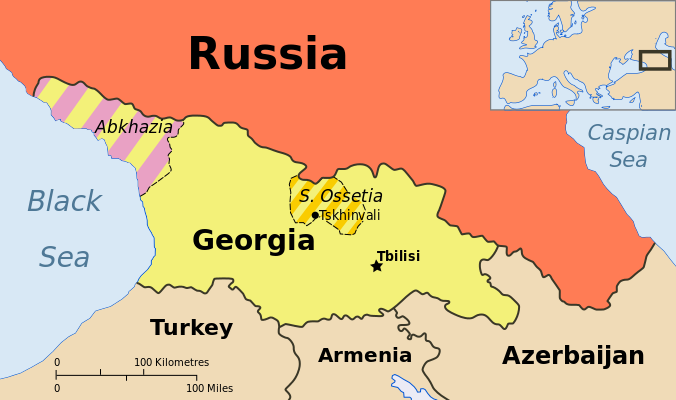

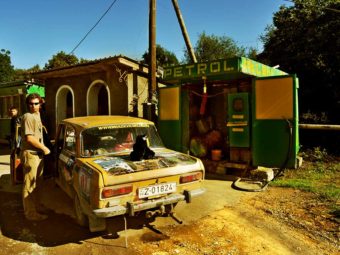
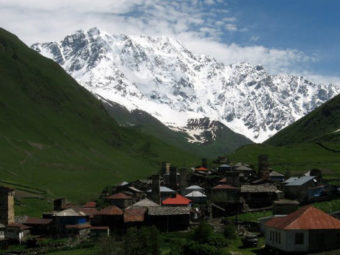

Leave a Reply